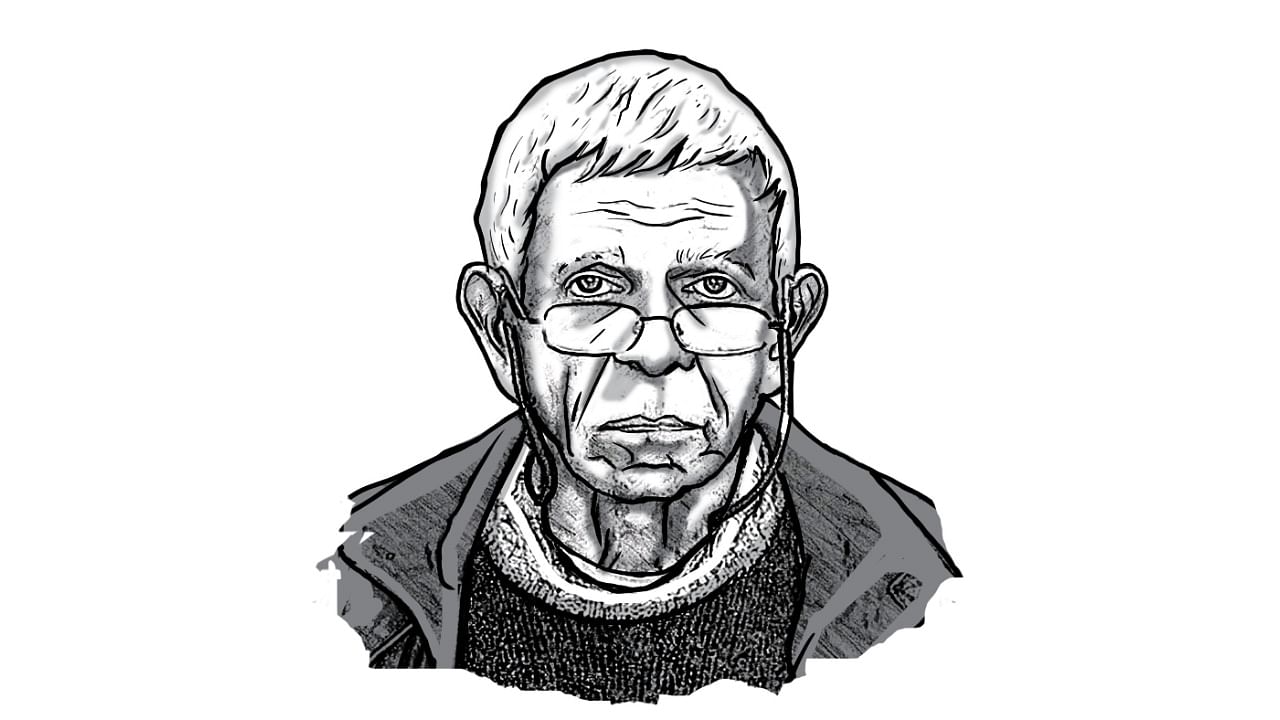
Roger Marshall is a computer scientist, a newly minted Luddite and a cynic
Credit: Special Arrangement
In his quest to regain the US presidency, the single-most important pledge made by Donald Trump has been to deport all 11 million illegal immigrants currently in the US (never mind that these immigrants are the lifeblood of the agricultural and construction industries in the country). This is akin to deporting the entire population of Chennai to other parts of India.
Wars, including trade-related ones, create migrants. Most migrants are from a handful of countries in the Global South -- Mexico, El Salvador, Honduras, Guatemala, India, Syria, Sudan, Libya. Note that neither Haiti nor any African country is on the list. The destination of choice for these migrants is either the US or countries in western Europe – the very same countries which once colonised the Global South and impoverished them. Did you know that most would-be migrants congregated at the US-Mexico border are from Central America (principally, El Salvador) and India?
When reporting on westerners living in the Global South, newspapers refer to them as ‘expats’, never as ‘immigrants’ or ‘aliens’, since those terms are reserved for migrants from the Global South. Unlike the western ones, they never have names and are invariably referred to as ‘illegal immigrants’ or worse. Take, for example, the January 28, 1948, plane crash involving 28 Mexican farm workers and four Americans, all of whom were killed. The New York Times identified the Americans by name, the Mexicans were just ‘deportees’. The Mexicans who had entered the US, quite legally, on work visas were being deported since their employers had reneged on their commitments. No sanctions were invoked on these employers, of course.
In this strange world of ours, the word ‘globalisation’ has mostly come to mean the free flow of capital, but not people, across trans-national borders to facilitate the large-scale production of consumer goods, utilising cheap labour so readily available in poor countries. However, when people from poorer countries, either desirous of improving their living standards or fleeing from repressive governments in search of asylum, attempt to move to high-income western nations, these migrants face a whole host of barriers, some of which can be attributed to Kafkaesque rules that govern the issuance of visas or the granting of asylum by host countries. When migrants without visas show up at the borders of the US, UK, Australia or any of the EU nations, most are deported to their home countries, others are held in squalid migrant camps in faraway islands for indefinite periods (Australia favours this approach) or sent to some third country.
The genesis of the ‘third country’ solution can be traced back to a seemingly remote event -- the US War on Terror, which started right after the 9/11 terrorist attacks on New York and the Pentagon in 2001. Since US law did not permit the use of torture during interrogations, the government outsourced the torture of Al Qaeda suspects captured in Afghanistan and elsewhere to countries such as Poland, Egypt and Thailand.
However, a select few migrants, such as deposed dictators (the Shah of Iran and Uganda’s Idi Amin should come to mind) and wealthy individuals are readily provided visas by high-income countries. Just before Britain ceded Hong Kong to China, most of the wealthy Hong Kong citizens relocated to Canada, courtesy of the Canadian government. Neither the Vietnamese boat people headed for Australia nor the Haitian boat people headed for Florida were provided similar accommodation. If anything, the US Coast Guard intercepted the Haitian boats and sent them back to Haiti but provided safe passage for the boat people, mostly white, fleeing Fidel Castro’s Cuba. Curiously enough, per the Pew Research Centre, there were more illegal immigrants from Canada in 2022 than there were from Haiti!
There is little doubt that economic, social and geopolitical considerations greatly influence the manner in which the visa game plays out in different parts of the world. Why on earth would Israel import Indian labourers when tens of thousands of Gazans are unemployed and, more importantly, why would the Indian government actually recruit and send these labourers? Likewise, why would the US government allow white farmers in the Mississippi Delta to recruit white agricultural workers from South Africa when any number of African-Americans in the Delta region are out of work? Since the trafficking of migrants is also trade, shouldn’t this be made part of free trade agreements, bilateral or otherwise?